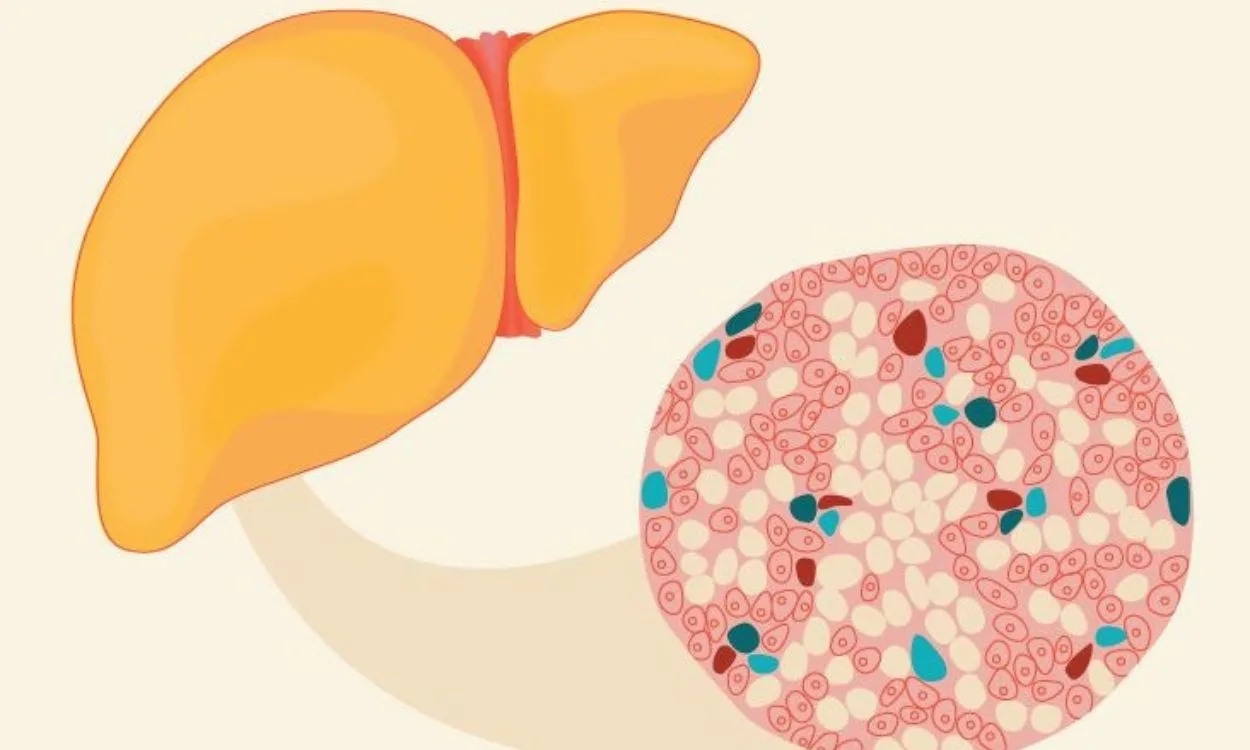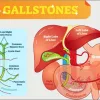Does fatty liver affect cholesterol levels?
Fatty liver, also known as hepatic steatosis, is a condition characterized by the accumulation of fat in the liver cells. It is a common condition and can be caused by various factors such as obesity, excessive alcohol consumption, diabetes, high cholesterol, and certain medications. While fatty liver is typically considered a benign condition, it can have implications for cholesterol levels. In this article, we will explore the relationship between fatty liver and cholesterol and discuss its impact on overall health.
Understanding fatty liver
To understand the impact of fatty liver on cholesterol levels, it is important to first understand the condition itself. Fatty liver occurs when there is an imbalance in the liver’s ability to break down fats and remove them from the organ. This results in the accumulation of fat in the liver cells, leading to liver enlargement and potential inflammation.
The link between fatty liver and cholesterol
Fatty liver and cholesterol levels are closely interconnected. Research suggests that individuals with fatty liver often have abnormal cholesterol levels, including elevated levels of triglycerides and low-density lipoprotein (LDL) cholesterol, commonly known as “bad” cholesterol.
- Triglycerides: Triglycerides are a type of fat found in the blood. In individuals with fatty liver, the liver’s ability to metabolize and remove triglycerides from the bloodstream is compromised, leading to increased levels of triglycerides.
- LDL cholesterol: LDL cholesterol is responsible for carrying cholesterol to various tissues in the body. When the liver is unable to effectively process fats, LDL cholesterol production increases, leading to elevated levels of LDL cholesterol in the blood.
- HDL cholesterol: High-density lipoprotein (HDL) cholesterol, often referred to as “good” cholesterol, helps remove excess cholesterol from the bloodstream. Fatty liver can reduce the production of HDL cholesterol, further contributing to imbalances in cholesterol levels.
The impact on overall health
Elevated cholesterol levels, particularly high levels of LDL cholesterol and triglycerides, are associated with an increased risk of cardiovascular diseases such as heart disease and stroke. Fatty liver, by influencing cholesterol metabolism, can exacerbate this risk. Individuals with fatty liver and abnormal cholesterol levels are more likely to develop atherosclerosis, a condition characterized by the buildup of plaque in the arteries, which can restrict blood flow and increase the risk of heart-related complications.
Managing fatty liver and cholesterol levels
To manage fatty liver and its impact on cholesterol levels, lifestyle modifications are essential. Here are some strategies that can be effective:
- Weight management: Maintaining a healthy weight through a balanced diet and regular exercise can help reduce fat accumulation in the liver and improve cholesterol levels.
- Dietary changes: Adopting a diet that is low in saturated and trans fats, high in fiber, and rich in fruits, vegetables, and whole grains can help improve liver health and regulate cholesterol levels.
- Physical activity: Engaging in regular physical activity can improve liver function, promote weight loss, and positively impact cholesterol levels.
- Limit alcohol consumption: Excessive alcohol consumption is a major contributor to fatty liver. Limiting or avoiding alcohol can significantly improve liver health and cholesterol levels.
- Medical management: In some cases, medication may be prescribed to manage cholesterol levels and reduce the risk of cardiovascular complications. Consultation with a healthcare professional is recommended to determine the appropriate course of treatment.
Fitpaa: Your partner in achieving optimal health
If you are looking for a comprehensive solution to manage fatty liver, improve cholesterol levels, and achieve optimal health, Fitpaa is here to support you. With our AI-driven metabolism monitoring and management technology, Fitpaa offers a personalized approach to health and fitness.
- Metabolism assessment: Fitpaa begins the journey by assessing your current metabolism, identifying the root cause of your health condition. This assessment helps determine the most effective strategies to manage fatty liver and optimize cholesterol levels.
- Fitpaa Capsule: Our expert team of fitness coaches, nutritionists, and doctors works together to prepare your personalized Fitpaa Capsule. This all-in-one health and fitness plan is designed to optimize your metabolism, regulate cholesterol levels, and help you achieve your goals.
- Real-time guidance: Fitpaa’s real-time guidance technology incorporates habit-building and timely nudging to keep you motivated throughout the day. The Fitpaa mobile app provides all the necessary tools, such as a virtual workout trainer, diet tracker, and performance tracking, to support you on your journey.
- Progress monitoring: Fitpaa’s team of fitness planners, nutritionists, and doctors regularly review your progress, ensuring course corrections are made as needed to help you achieve your health and fitness goals.
Fitpaa is dedicated to helping you achieve optimal health, and our guarantee









